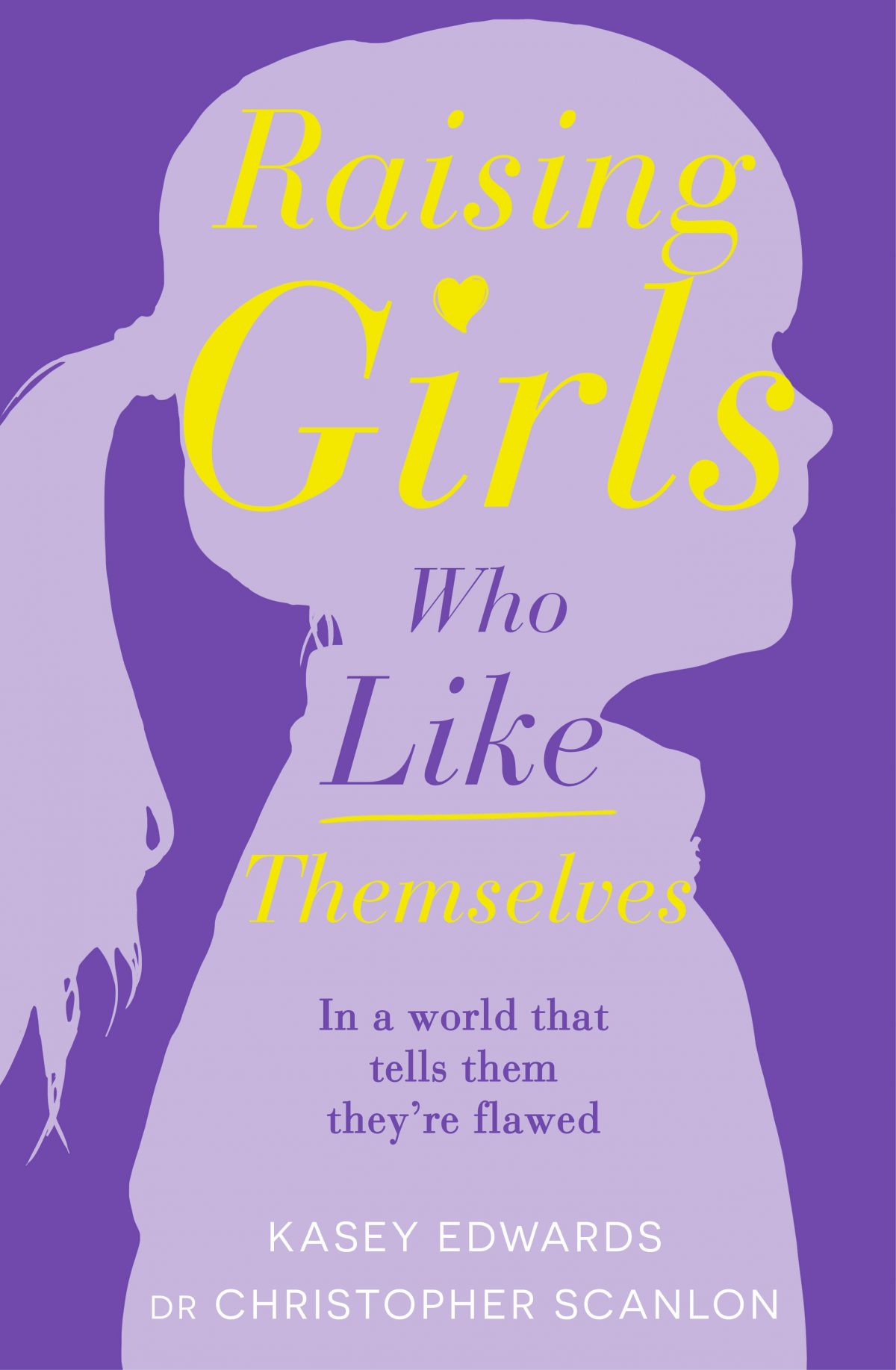
Our girls have more opportunities than ever before, but too many of them don't like themselves, as Natalie Moutafis discovers in a new book on raising girls.
As a woman and a mother of a toddler daughter, I know how different the world can be for girls. As my daughter gets older, I’m seeing with more and more clarity how easy it is for gender bias to play a role in the day-to-day life of children – something that becomes more apparent when you also have a son.
So, when Raising Girls Who Like Themselves came across my desk, I was interested in seeing what it had to offer. The authors, Kasey Edwards and Dr Christopher Scanlon, who have daughters themselves, are researchers and writers.
They have written this book as a tool kit for parents who are in the trenches with toddlers or teens (and every age in between), wanting to raise daughters who, quite simply, like themselves.
But as you quickly discover from the statistics covered in the start of the book, many of our girls don’t like themselves:
- Nearly 1 in 5 girls aged 16–17 meet the clinical criteria for depression.
- Seven per cent, or 1 in 14, of Australians aged 4–17 have experienced an anxiety disorder. This figure only gets worse as our girls age, with 1 in 3 women in Australia experiencing anxiety.
- The National Eating Disorders Collaboration found that more than 55 per cent of Australian girls aged 8–9 are dissatisfied with their body, and that by the ages of 10 and 11, 56 per cent of girls try to control their weight.
These statistics are pretty sobering.
How do we raise girls who like themselves?
The book’s subtitle – in a world that tells them they’re flawed – has defined the crux of the issue and Edwards and Scanlon divide these into seven characteristics of girls who like themselves, which they unpack in detail.
They offer handy tips and strategies, often with anecdotes of how they’ve implemented this approach with their daughters, making it relatable (there’s also a convenient ‘Action for Dads’ section at the end of each chapter).
Here are two examples:
Girls who like themselves are calm
Parenting can feel like a never-ending to-do list. There is always something extra you feel you should be doing to maximise your daughter’s potential. The good news is that you can opt out of some of it.
‘When it comes to the pursuit of extracurricular activities and “learning opportunities”, parental anxieties run deep,’ write Edwards and Scanlon. ‘It’s not unusual for girls to do lessons such as ballet, martial arts, gymnastics, academic tutoring, athletics, tennis, piano, basketball, drama or violin, with something on every afternoon after school or preschool.’
They offer parents a practical way off the parenting hamster wheel, suggesting that extracurricular activities and ‘learning opportunities’ don’t have to control family life.
Rather than turning daughters (and parents) into exhausted, anxious balls of stress, they give parents permission to ‘opt out’, suggesting a less is more approach for a calm and confident daughter.
This approach echoes that of Brené Brown in Daring Greatly who values both ‘rest and play’ as part of her parenting manifesto.

Girls who like themselves have body confidence
If people are always talking about how pretty a girl is, it’s only natural for her to assume that beauty is really important.
Similarly, as Amanda Dunn writes in The New Puberty saying to a girl, ‘Don’t you look pretty’ reinforces the idea that there is value placed on how attractive someone is.
The seemingly harmless compliments are well-intentioned, these remarks can make up the majority of what a girl hears about herself.
So how should we talk to girls? The simplified answer – like we do boys. Comment on what they are doing in the moment or remark on something in your surroundings. With a little practice, you can move away from appearance-related comments.
Take on board what works
The authors don’t expect this to be a one-size-fits-all approach; rather, they work from a ‘good-enough parent’ perspective, advising readers to take on board what may work for their ‘imperfect’ families and leave the rest – a refreshing piece of advice.
Raising Girls gives parents of daughters some helpful tools to support their children (and yes, many of the suggestions can be applied to our boys, too) in a toxic world. Our girls are seeing messages all day telling them how to act, dress, eat and ‘be’ – telling them they are ‘flawed’.
Girls who instead harness their self-confidence; self-belief; body confidence and autonomy; are calm, independent; have strong relationships; and take comfort in being themselves will, hopefully, not only like themselves, but become emboldened and drive social change.
Books like these are a move in the right direction for parents to feel empowered to step away from so-called expected behaviours, and stop enforcing the idea that our girls’ value is measured by how other people see her.

About the book
Raising Girls Who Like Themselves, in a world that tells them they’re flawed is published by Penguin Life and retails for $34.99.
Like this post? Share using the buttons on this page.
Subscribe to The Parents Website

